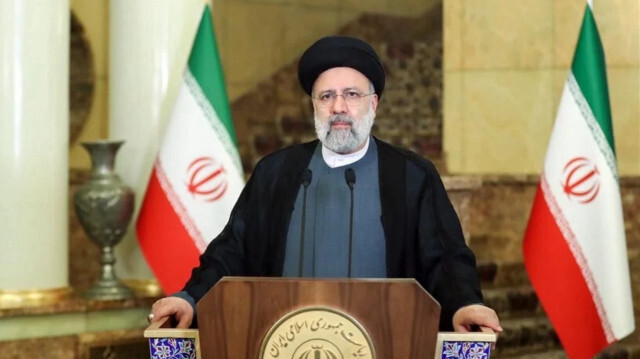
164-kilometer railway line, which will connect Iran with other regional countries, is part of INSTC
Iranian President Ebrahim Raisi and his Russian counterpart Vladimir Putin on Wednesday oversaw the signing of an agreement on the construction of a railway line between Iran’s northern city of Rasht and Astara on the border with Azerbaijan to facilitate regional trade.
The 164-kilometer railway line, which will connect Iran, India, Russia, Azerbaijan as well as other regional countries, is the only missing link in the International North-South Transport Corridor (INSTC), a 7,200-km multimode transportation network.
The agreement worth $1.6 billion was signed by Iranian Transport Minister Mehrdad Bazrpash and his Russian counterpart Vitaly Savelyev.
During the signing ceremony, held via video-link in Tehran and Moscow, Raisi and Putin said the ambitious agreement would help in the transit of goods.
The Iranian leader termed the railway agreement “an important and strategic step” in cooperation between the two countries.
He hailed it as a manifestation of cooperation between Tehran and Moscow as well as other INSTC countries, adding that his government plans to promote Iran's role in the regional economy.
“The INSTC will benefit all regional states as it will establish friendship, convergence and commercial cooperation between the countries in East Asia, as well as those in the Caucasus and North Europe,” Raisi said.
The INSTC, established in 2000 as a route to move freight from India, Iran, Azerbaijan and Russia via ship, rail and road, goes through Iran and connects South Asia with North Europe.
- Crossroad of trade
Putin, for his part, said the agreement for the joint construction of the Rasht-Astara railway line is a “great event” for the entire region and world transport infrastructure.
"The unique North-South transport artery, of which the Rasht-Astara railway will become a part, will help to significantly diversify global traffic flows. Transportation along the new corridor will have significant competitive advantages," he added.
Putin noted that the delivery of goods from St. Petersburg to Mumbai would take about 10 days on the new route, whereas this would take up to 30-45 days on traditional routes.
"There is a significant saving in terms of time and costs," he added.
The Russian president stressed that in this way the implementation of a large-scale project to create an international North-South transport corridor will start.
"We have said much on the importance of building this through a transport corridor designed to connect Russian ports in the Baltics and northern seas to Iranian ports on the coast of the Persian Gulf and the Indian Ocean. As a reminder, the principal decision on joint work of Russia and Iran in this direction was taken during the top-level talks in Tehran in July 2022," he stated.
Experts see the transport corridor as part of efforts by sanctions-battered Iran and Russia to boost trade and decrease costs.
In a post on Twitter late on Tuesday, the Iranian president's key aide and deputy chief of staff Mohammad Jamshidi said the “top issue” in talks between Raisi and Putin has been the North-South Corridor.
In a separate statement, government spokesman Bahadori Jahromi said the “shorter and cheaper transit route” will turn Iran into a “crossroad of trade in the region.”
Russian Deputy Prime Minister Alexander Novak, who visited Tehran on Tuesday and held talks with Iranian officials, said the construction of the railway section will mark a “global change in transport and logistics routes.”
“This is just the beginning. We agreed that our railway freight turnover will amount to 15 million tons per year. And this applies only to transit cargo. In the future, we will expand the corresponding capacities,” Novak told reporters in Tehran.

